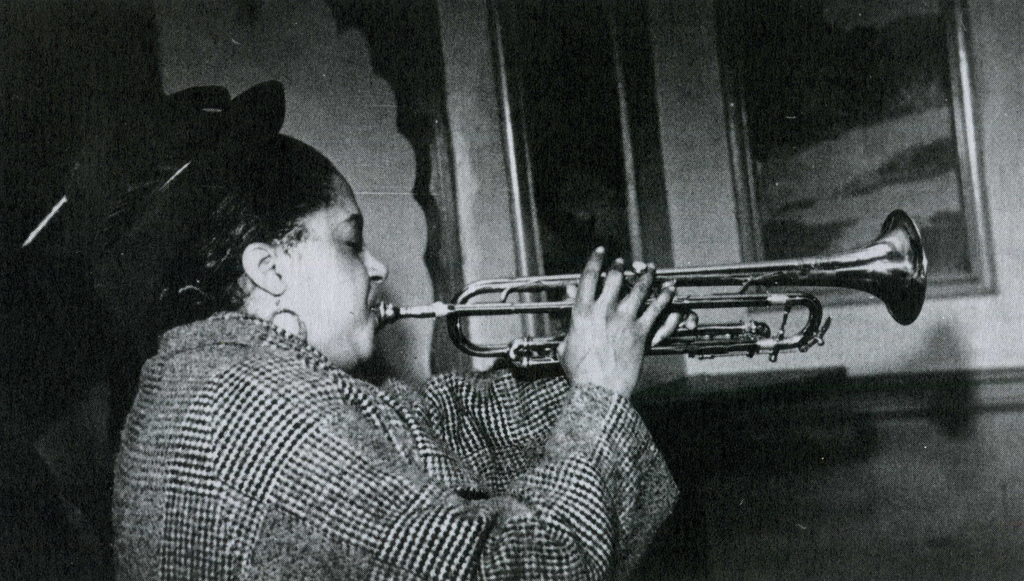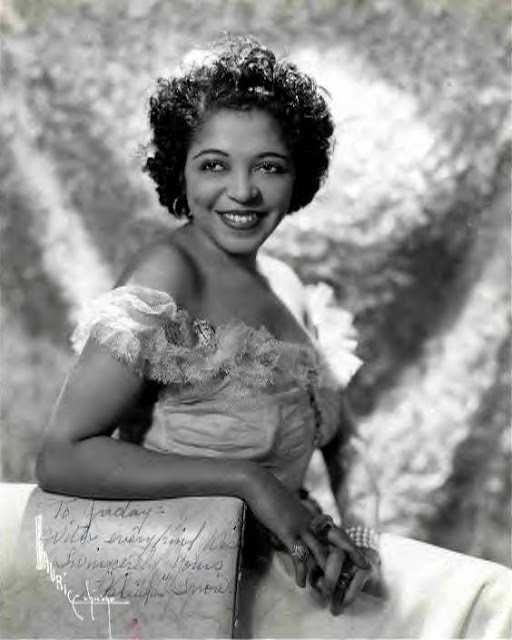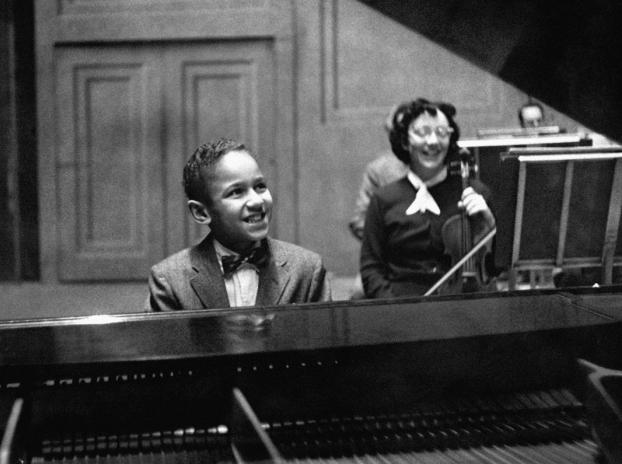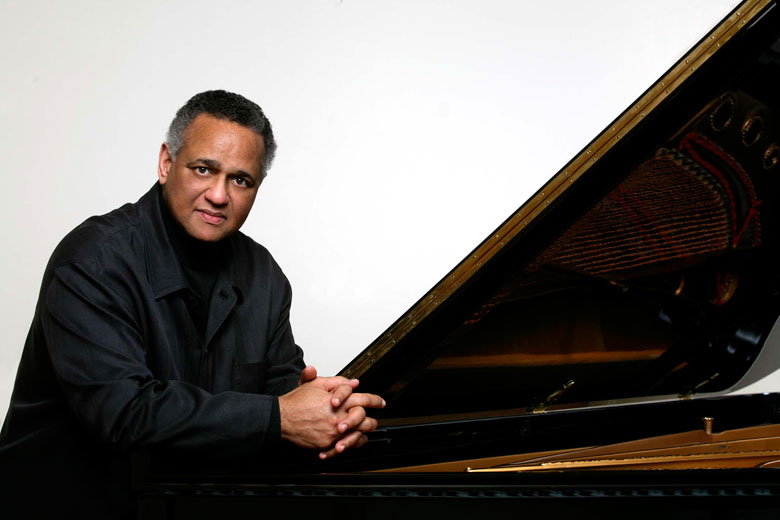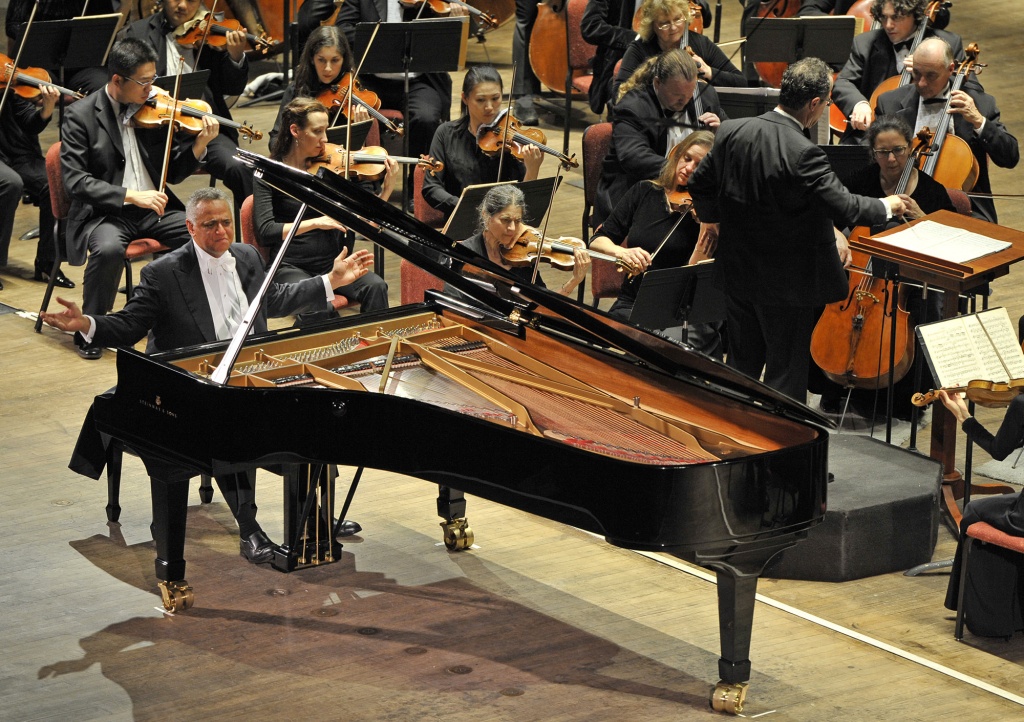Monthly Archives: February 2014
Black History Month: Afro-German Actor & Singer: Günther Kauffman
Günther Kaufmann, Afro-German Actor & Singer
(June 16, 1947 – May 10, 2012)
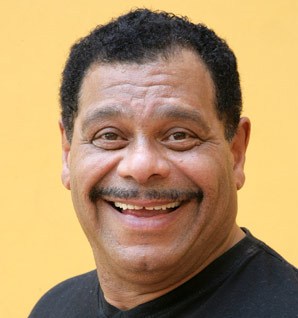 Günther Kaufmann (16 June 1947 – 10 May 2012), was what the Germans call a “Besatzungskind” (war or occupation child), one of thousands of children born between 1945 and 1949 as a result of relationships between German women and American soldiers. The son of an African American soldier and a German mother, Günther Kaufmann was born in June 1947 in the Hasenbergl district of Munich. Kaufmann’s father, whom he never knew, returned to the US before he was born in Munich. As a Mischlingskinder (mixed race child), he faced a difficult childhood and youth in postwar West Germany.
Günther Kaufmann (16 June 1947 – 10 May 2012), was what the Germans call a “Besatzungskind” (war or occupation child), one of thousands of children born between 1945 and 1949 as a result of relationships between German women and American soldiers. The son of an African American soldier and a German mother, Günther Kaufmann was born in June 1947 in the Hasenbergl district of Munich. Kaufmann’s father, whom he never knew, returned to the US before he was born in Munich. As a Mischlingskinder (mixed race child), he faced a difficult childhood and youth in postwar West Germany.
“The White Negro of Hasenberg, is the title of his autobiography. In the 70s and 80s, he starred in 16 Rainer-Werner Fassbinder films, including “Berlin Alexanderplatz,” “The Marriage of Maria Braun” and “Querelle”. In the ’90s he had roles in TV series including “Derrick” and “The Old Man”.
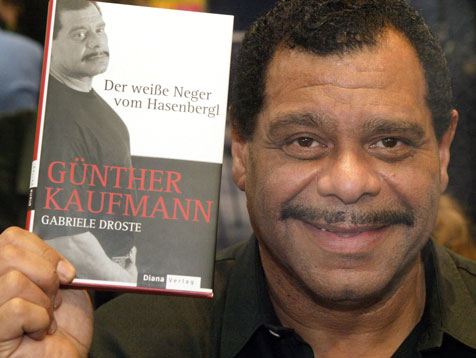
In November 2002, for the love of his terminally ill wife, he falsely confessed to causing the death of his accountant, Hartmut Hagen, and was sentenced to 15 years in prison. He confessed to the deed even though he was not guilty because he wanted to protect his cancer-stricken third wife, Alexandra, who had induced three accomplices to carry out the crime. By deception, she had received a loan of 850,000 marks from the accountant, who later pressed for its return. He was later killed after three men entered his house to destroy incriminatory evidence; Kaufmann wanted to spare his wife the ordeal of dying in prison.
After spending almost three years in prison, he was released in 2005 after the real criminals were exposed. The following year he was in court again because his original false statement had resulted in two others being held on remand. He was given a suspended sentence of 22 months.
After his release, he resumed his career, notably performing in the German children’s films “Vicky the Viking” (2009) and Michael “Bully” Herbig’s, the “Terrible Sven.”
Kaufmann, was a singer as well, which was showcased in three of Fassbinder’s films. He sang the opening theme song for Whity. However, his best song was, “So Much Tenderness,” written by Peer Raben and Fassbinder.
Kaufmann died on the evening of 10 May 2012 at the age of 64 having suffered a heart attack while out for a walk in the Grunewald locality of Berlin. A passer-by and paramedics tried to resuscitate him on site for two hours.
He is survived by his son, Davy and daughter Eva.
Filmography: IMBd
Tribute to Günther Kaufmann by Tyron Ricketts, Black German Actor, Musician & Activist
Günther Kaufmann & son David Kaufmann, a Musician and Entertainer
We Honor & Remember Mr. Günther Kaufmann!
Black History Month: Valaida Snow, A Sensation in Europe
Valaida Snow: The Queen of Trumpet and Song
“Singer, trumpeter and dancer. Child star, jazz pioneer and world traveler. Legend and myth. If Valaida Snow’s life wasn’t already sensational enough, she sensationalized it further, freely evading and embellishing the truth of her triumphs, trials and tribulations. But even after her life has been measured against the historical record, it remains a grand and compelling tale, and Valaida herself a grand and compelling figure,” reads the write-up on the back cover of Canada’s great jazz writer Mark Miller’s High Hat, Trumpet and Rhythm: The Life And Music Of Valaida Snow (2007).
Born in 1904 in Chattanooga, Tennessee, Ms. Valaida Snow was an African-American globetrotting jazz musician, entertainer, and instrumentalist. She was raised on the road in a show-business family. A child prodigy, she learned to play cello, bass, banjo, violin, mandolin, harp, accordion, clarinet, trumpet, and saxophone at professional levels by the time she was 15. She also sang and danced. After focusing on the trumpet, she quickly became so famous at the instrument that she was named “Little Louis” after Louis Armstrong, who used to call her the world’s second best jazz trumpet player besides himself.
She played concerts throughout the USA, Europe and China. Her most successful period was in the 1930’s when she became the toast of London and Paris. Around this time she recorded her hit song “High Hat, Trumpet, and Rhythm”. She performed in the Ethel Waters show Rhapsody in Black, in New York.
Valaida Snow~High Hat Trumpet & Rhythm~1935
In the mid-1930’s she made films with her husband, Ananias Berry, of the Berry Brothers dancing troupe. After playing New York’s Apollo Theatre, she revisited Europe and the Far East for more shows and films.
As the story has been written numerous times, while touring through Denmark in 1941, she was arrested by the Nazis during the German occupation of Denmark and kept at Vestre Fængsel (Western Prison), a Danish prison in Copenhagen that was run by the Nazis. She was released on a prisoner exchange in May 1942. According to jazz historian Scott Yanow, “she never emotionally recovered from the experience.”
Author and researcher Jayna Brown in her book Babylon Girls: Black Women Performers and the Shaping of the Modern claims that Snow stayed in wartime Denmark by choice and that the story of her imprisonment was a press generating ploy invented by her management to set the stage for her return to America. Mark Miller’s biography High Hat, Trumpet and Rhythm: The Life of Valaida Snow also dismantles the fictions of her life and paints a portrait of a talented performer, albeit one that didn’t shy from stretching the truth to suit her needs for a bit of play in the press.
Valaida Snow performing the song “Patience and Fortitude” (1946) with The Ali Baba Trio
Upon returning to the states, Snow was determined to to continue her musical career. Although she was unable to fully retrieve her artistic prowess, she continued to perform in various venues until the 1950’s when she toured with a group called “The Honey Drippers,” who were pioneers in a new music that would soon sweep the world: Rhythm & Blues.
Valaida Snow died of a brain hemorrhage on May 30, 1956, in New York City, backstage during a performance at the Palace Theatre.
While the truth of her stories of imprisonment may be in question, what is undeniably true is that Ms. Snow was an entertainer extraordinaire; a Black woman from the U.S.A. who, against the odds, survived in Europe during the Nazi era!
We Honor & Remember Ms. Valaida Snow!
Additional Information:
LISTEN to NPR: Fresh Air’s jazz critic reviews Mark Miller’s High Hat, Trumpet, and Rhythm: The Life and Music of Valaida Snow. It’s a biography of jazz singer and musician Valaida Snow, aka “Little Louis.
READ Valaida Snow’s story in her own words: Life In A Nazi Prison Camp: Three Boiled Potatoes and Six Lashes Every Day with a Bull Whip Were Regular Portions for Valaida Snow, Versatile Bandleader, The Afro American – April 24, 1943.
Extensive ARTICLE: Valaida Snow: Forgotten Genius!
Black History Month: André Watts, German-Born Classical Pianist
Black History Month or National African American History Month, is an annual celebration of achievements by black Americans and a time for recognizing the central role of African Americans in U.S. history. The event grew out of “Negro History Week,” the brainchild of noted historian Carter G. Woodson and other prominent African Americans. Since 1976, every U.S. president has officially designated the month of February as Black History Month. It is an annual observance in Canada, Germany and the United Kingdom for remembrance of important people and events in the history of the African diaspora. It is celebrated in Canada and Germany in February and in October in the United Kingdom.
In recognition of Black History Month, this week we honor and celebrate one of the world’s greatest pianist alive today, the incomparable André Watts.
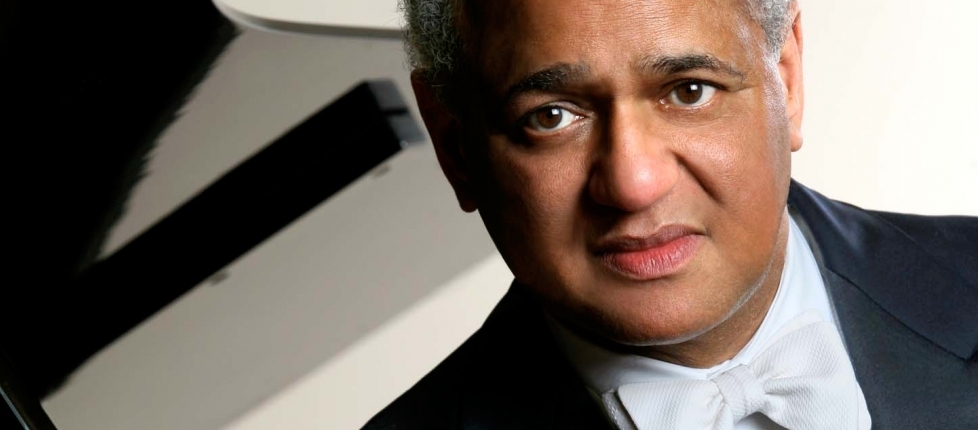 André Watts burst upon the music scene at age 16 when Leonard Bernstein chose him to debut with the New York Philharmonic in a nationwide Young People’s Concerts broadcast. Two weeks later, Bernstein asked him to substitute at the last minute for the ailing Glenn Gould in performances of Liszt’s E-flat Concerto with the New York Philharmonic, thus launching his career. More than 40 years later, Watts remains one of today’s most celebrated and beloved superstars. His performances each year with the world’s great orchestras and conductors, and his sold-out recitals and appearances at the most prestigious international festivals, bring him to every corner of the globe.
André Watts burst upon the music scene at age 16 when Leonard Bernstein chose him to debut with the New York Philharmonic in a nationwide Young People’s Concerts broadcast. Two weeks later, Bernstein asked him to substitute at the last minute for the ailing Glenn Gould in performances of Liszt’s E-flat Concerto with the New York Philharmonic, thus launching his career. More than 40 years later, Watts remains one of today’s most celebrated and beloved superstars. His performances each year with the world’s great orchestras and conductors, and his sold-out recitals and appearances at the most prestigious international festivals, bring him to every corner of the globe.
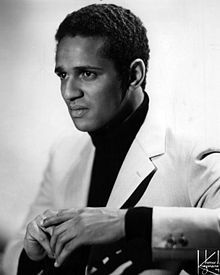 André Watts was a prodigy at the piano. He started playing with the Philadelphia Orchestra at age 9 and made his New York Philharmonic debut at age 16, under the auspices of Leonard Bernstein. Watts is considered one of classical music’s modern greats, having performed internationally and received a host of awards and honors, including an Avery Fisher Prize.
André Watts was a prodigy at the piano. He started playing with the Philadelphia Orchestra at age 9 and made his New York Philharmonic debut at age 16, under the auspices of Leonard Bernstein. Watts is considered one of classical music’s modern greats, having performed internationally and received a host of awards and honors, including an Avery Fisher Prize.
Playing Piano as a Child
André Watts was born on June 20, 1946, in Nürnberg, Germany, to Maria Alexandra Gusmits, of Hungarian descent, and Herman Watts, an African-American soldier stationed in Germany after World War II. Watts received his first piano lessons from his mother after deciding to discontinue his initial studies of the violin. His mother would hold up 19th century Hungarian composer Franz Lizst as an idol for the young Watts to encourage him to practice.
When the family later moved to Philadelphia, Pennsylvania, Watts continued playing the piano, and began playing with the Philadelphia Orchestra at the age of 9. He also received training at the Philadelphia Academy of Music. His parents divorced in the early 1960s.
Grand Philharmonic Debut
At age 16, Watts won a 1962 competition to play in conductor Leonard Bernstein’s televised Young People’s Concert series with the New York Philharmonic, with Watts performing a Lizst concerto. A short time later, Watts was called in by Bernstein at the last minute to be a replacement for pianist Glenn Gould, who was unable to make a scheduled New York Philharmonic performance due to illness. Watts’s resulting solo performance on New Year’s Day in 1963 was enrapturing, inspiring immediate worldwide acclaim.
Watts released his first album, The Exciting Debut of André Watts, under Columbia Records in 1963. That same year, he received a Grammy Award for most promising new classical music artist. Watts’s manager and mother decided that he would, initially, do concert work on a limited basis and continue his schooling, studying under pianist Leon Fleisher and earning a bachelor’s degree in music from the Peabody Institute in 1972.
Historic TV Appearance
During the the late 1960s and ’70s, Watts continued to grow in stature and reputation as an artist, performing in the United States, Europe and Asia, and earning an array of accolades. In 1976, he made history with PBS’s Live From Lincoln Center program by playing the first fully televised piano recital. He appeared on TV regularly with a variety of musical outfits, including the Boston Symphony and the Mostly Mozart Festival Orchestra, and eventually guest-starred on the famous children’s program Mister Roger’s Neighborhood, where he played several pieces and spoke about the calming quality of music.
Later Career
In 1988, the same year that he celebrated his 25th season of performances, Watts won the Avery Fisher Prize, a monetary award for solo instrumentalists of distinction given by Lincoln Center. He married Joan Brand in 1995, and they have been together since. In the early 2000s, Watts suffered a spontaneous hematoma and collapsed before a concert in California.
After surgery, he made a full recovery, returning to performing after just two months.
Watts has recorded a number of albums over the years, providing interpretations of Ludwig van Beethoven, Frédéric Chopin, Franz Schubert, Pyotr Tchaikovsky and Lizst, among others. He has also worked as an educator, serving as an artist-in-residence at the University of Maryland and as the music chairperson at Indiana University. Watts has also won various honors throughout his decades-long career, including an induction into the Hollywood Bowl of Fame in 2006 and a 2011 National Medal of Arts.
The talented pianist, who celebrated his 67th birthday in June 2013, continues to perform to great acclaim.
NPR Interview LISTEN: A Pianist Who Goes Way Back with The Philadelphians.
Andre Watts plays the Grandes Études de Paganini S.141 by Franz Liszt as part of an all Liszt recital given in Tokyo on 11/22/1988. Restored by R. B. Prior








